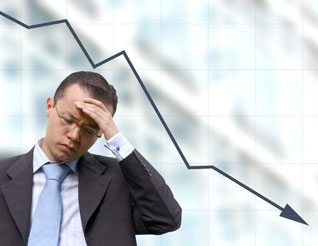|
Is it bad
for the economy if inefficient, badly run businesses go under?
That seems to be the thinking behind fears that the Big Three
American automakers, GM, Ford, and Chrysler, might go bankrupt
if governments do not bail them out. Millions of jobs would be
lost, it is argued, including some half a million here in
Canada. The effects would ripple through the economy and depress
spending all around. Like the major financial institutions
before them, interested parties argue that the Big Three are
simply "too big to fail." It would be closer to the truth to say
that these dinosaurs are too big and clumsy to survive.
 In a free market, if a business goes bankrupt, it is because it
was badly run, and competitors were able to be more
efficient―that is to say, those competitors were able to produce
the same product or service and offer it at a lower price by
keeping their costs in check. Alternately, they were able to
offer a better product or service for the same price, or again,
some combination of a better product or service and a lower
price. When in the worst case scenario, a poorly run business is
allowed to go bankrupt and liquidate, the capital and labour
that were trapped in the inefficient enterprise are freed up to
be reallocated to more efficient uses. More successful
competitors can expand, purchasing plants and equipment and also
hiring laid off workers.
In a free market, if a business goes bankrupt, it is because it
was badly run, and competitors were able to be more
efficient―that is to say, those competitors were able to produce
the same product or service and offer it at a lower price by
keeping their costs in check. Alternately, they were able to
offer a better product or service for the same price, or again,
some combination of a better product or service and a lower
price. When in the worst case scenario, a poorly run business is
allowed to go bankrupt and liquidate, the capital and labour
that were trapped in the inefficient enterprise are freed up to
be reallocated to more efficient uses. More successful
competitors can expand, purchasing plants and equipment and also
hiring laid off workers.
The transition is never
painless, of course. Stockholders take a hit as assets are sold
off at a discount. Some assets may be of no real use,
representing excess capacity or being out of date or run down,
leading to further loss. Not all employees will be able to find
work in the same fields, as they may have been superfluous; or
they will have to take a pay cut, as their wages may have been
inflated by decades of legally-sanctioned union extortion. The
thing to notice is that, painful as it is, bankruptcy is just
the market's way of correcting itself. Economic players have
been acting in disregard of reality, and this has consequences.
Bankruptcy is a serious form of market correction, but like all
market corrections, when it is necessary, it is necessary.
Bailing out an enterprise
that should by all rights be allowed to fail is just an attempt
to deny reality. It punishes hardworking taxpayers and
efficiently-run businesses for the sins of overpaid union
members and inefficiently-run businesses. It also sets up an
unhealthy spiral, in which those who act recklessly are not held
to account, encouraging them to continue to act recklessly in
the future. It is corporate welfare at its worst, even though
some of the benefits redound to privileged union members at the
expense of all other workers.
What about foreign
competitors who bail out and subsidize their industries?
Wouldn't a free society need to subsidize too, just to compete?
Absolutely not. If we cannot compete in a particular, heavily
subsidized industry, like the automotive one, we should be happy
to allow foreign governments to subsidize our car purchases.
We'll just make something else, and pocket the difference, thank
you very much.
In most cases, when
modern companies declare bankruptcy, they are not even
liquidated, but merely get the opportunity to restructure their
businesses in more drastic ways than they are normally able to
do so. For instance, they can renegotiate their debt repayments
and labour contracts, and effect layoffs of superfluous workers
and incompetent managers. Creditors get to have some input into
how this is accomplished. There is still some pain all around,
but not as much as with outright liquidation.
All indications are that
the Big Three will be back at the taxpayer trough within months,
but this does not mean they should be accommodated. If any
companies ever deserved to go into bankruptcy restructuring, it
is these three, and one or more of them may even need to be
liquidated. Does anyone doubt that a Toyota or a Honda could do
a better job of running Chrysler than Chrysler does? One thing
is clear: if we keep saving economic actors from the
consequences of their actions, we can count on them to continue
their profligate, imprudent practices indefinitely.
|
